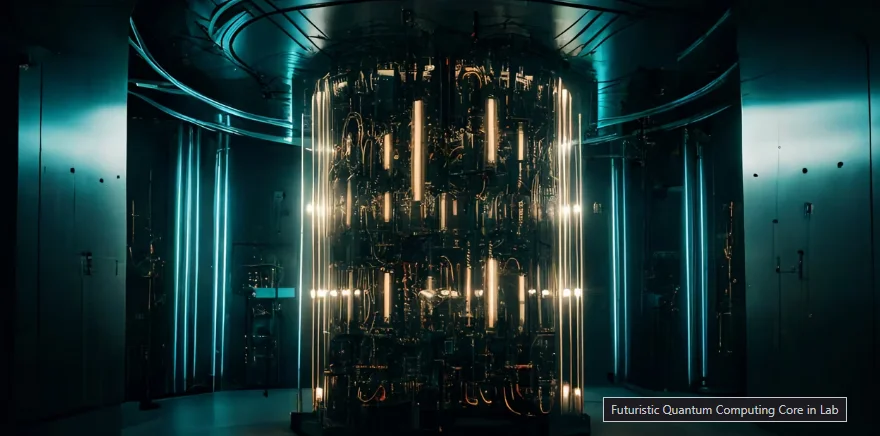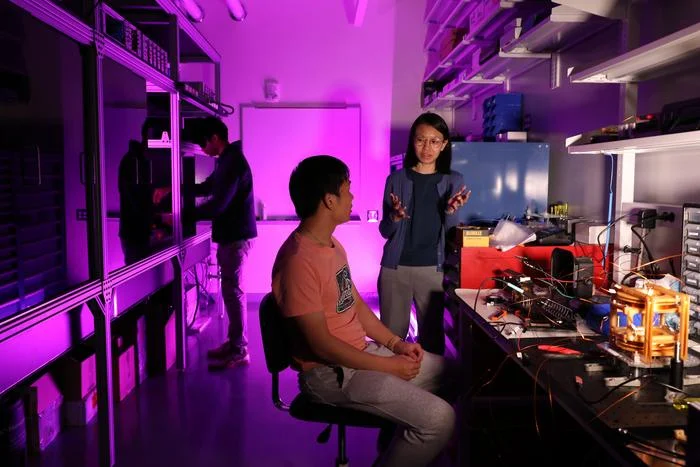Insider Brief
- India announced new quantum fabrication facilities under the National Quantum Mission to accelerate domestic capability and strengthen Atmanirbhar Bharat goals.
- The initiative includes advanced infrastructure for quantum materials, devices, and scalable hardware to support national R&D and industry applications.
- The government emphasized that these facilities will help India reduce foreign dependence and position the country as a competitive player in the global quantum ecosystem.
- Photo from Pixels by Studio Art Smile.
According to an official press release from IIT Bombay — Union Minister for Science & Technology, Dr. Jitendra Singh, today announced the establishment of two major state-of-the-art Quantum Fabrication and Central Facilities under the National Quantum Mission (NQM) during his visit to IIT Bombay.
With a total investment of ₹720 crore, these two central fabrication major facilities to be set up at IIT Bombay and IISc Bengaluru will indigenise the fabrication of quantum computing chips and quantum sensors, thereby accelerating their development in India. Two additional small-scale facilities will also be set up at IIT Delhi and IIT Kanpur.
So far, India has had to depend largely on facilities located abroad for the fabrication of quantum devices, leading to challenges in pacing up the processes of technology development.

These facilities, which would be accessible to academia, S&T institutions, industry, start-ups, MSMEs and strategic sectors across the country, could help fast-track the fabrication process and support technology development, prototyping, and small-scale production, particularly in startups and MSMEs. This would mark a major milestone in India’s journey toward technological sovereignty in quantum technologies for Atmanirbhar Bharat.
These fabrication and centralised facilities are being setup across three technology verticals:
- The Quantum Sensing & Metrology facility at IIT Bombay, which will accelerate breakthroughs in quantum sensing, such as advanced quantum sensor platforms for tangible societal and strategic impact.
- The Quantum Computing fabrication facility at IISc Bengaluru will enable fabrication of quantum computing chips based on superconducting, photonic, spin qubits, which are central to the development of scalable quantum qubit architectures.
Addressing the gathering at the PC Saxena Auditorium, Dr. Singh emphasised that the National Quantum Mission is a critical pillar of the Hon’ble Prime Minister’s vision of Atmanirbhar Bharat and Viksit Bharat 2047. He highlighted that these advanced fabrication and characterisation facilities will benefit academia, industry, start-ups and strategic sectors, enabling the development of indigenous quantum devices and building a skilled workforce in quantum hardware.
The Union Minister also appreciated cutting-edge research at the Quantum Lab and the Quantum Sensing & Metrology Hub at IIT Bombay.
He dedicated to the nation the Liquid Helium Facility, which can decrease the reliance on foreign sources of helium and reduce costs of cryogenic experiments to a tenth of the present value and contribute significantly to the growing research portfolio of superconductivity, quantum computing and sensing, photonics, healthcare, space exploration and green energy. This facility will now be open to all industry, academia and R&D institutions.
Dr Singh also spoke about BharatGen, a key initiative supported under the National Mission on Interdisciplinary Cyber-Physical Systems (NM-ICPS), which is building India’s multilingual, multimodal large language models- inclusive and efficient AI across 22+ Indian languages, integrating three key modalities: text, speech, and vision, to create robust solutions that meet India’s real needs.
He lauded the achievements of the IoT & IoE Technology Innovation Hub (TIH) at IIT Bombay, which is driving translational research and converting academic work into deployable technologies IoT and AI technology domains It has supported nearly 50 deep-tech startups and advanced 96 technology development projects, creating a strong pipeline from research to deployment.
Dr. Singh said that the combined efforts of NQM, NM-ICPS, BharatGen, and India’s scientific community exemplify the spirit of “Jai Vigyan, Jai Anusandhan”, reaffirming India’s commitment to emerging as a global leader in science, technology, and innovation.
Prof. Abhay Karandikar, Secretary, Department of Science and Technology (DST), congratulated all faculty, researchers, students and partners from IIT Bombay and the collaborating institutions and said “DST is proud to see the strong progress under both the National Mission on Interdisciplinary Cyber Physical Systems and the National Quantum Mission, where IIT Bombay continues to play a key leadership role.
The Technology Innovation Hub here has made remarkable advances by way of supporting startups, developing new technologies and recently launching work on Indian-language large language models. Under the National Quantum Mission, all four hubs (viz IISc Bengaluru, IIT Madras, IIT Delhi and IIT Bombay) IIT Bombay have shown impressive progress in the last few months and the quantum sensing hub at IIT Bombay has been particularly noteworthy. Together, these initiatives create a complete innovation ecosystem from fundamental research to commercialisation.
I encourage all researchers and innovators to fully leverage these opportunities. With strong collaboration across academia, industry and startups. I am confident that India will make significant advances in quantum technologies and other emerging areas”.















